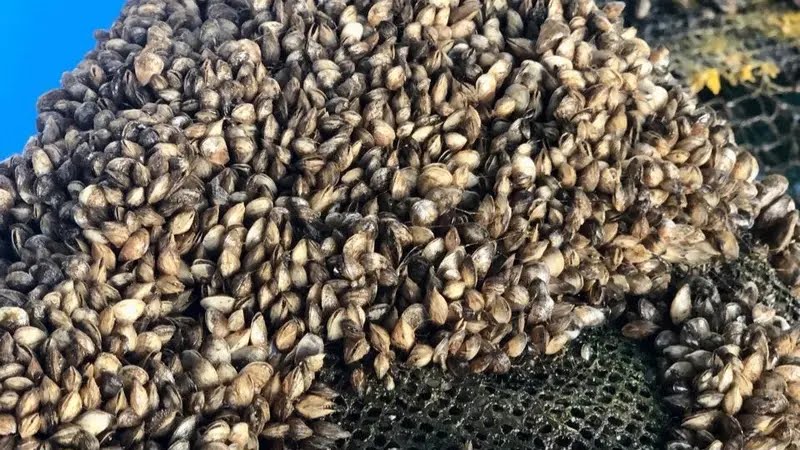Indonesia Boosts Lobster Farming with Innovative Brown Mussel Feed
JAKARTA, RAKYAT NEWS – The Indonesian Ministry of Marine Affairs and Fisheries (KKP) is pioneering the use of brown mussels to enhance lobster farming in Indonesia. This initiative aims to address challenges related to feed supply in lobster aquaculture.
Tb Haeru Rahayu, Director General of Aquaculture (DJPB) at KKP, emphasized that one major challenge in lobster farming is ensuring a consistent and high-quality feed supply. Brown mussels are seen as a key component in this effort.
“Continued innovation is crucial, including providing sufficient and high-quality lobster feed to support optimal production,” Rahayu said in Jakarta
Research indicates that mollusk-based feed can significantly boost the growth rates and overall production of farmed lobsters, given its nutritional benefits. The hope is that this development will lead to increased lobster production in Indonesia.
The Technical Implementation Unit (UPT) of DJPB is actively working on technological innovations for quality lobster feed supply.
The Lombok Marine Aquaculture Center has successfully mastered the breeding and cultivation of Mytilopsis adamsi, a type of brown mussel.
Rahayu noted that brown mussels are a promising feed option due to their high nutrient content and lack of human consumption. This focus on brown mussels eliminates competition between human food sources and lobster feed.
The rapid growth and ease of cultivation of brown mussels, which can thrive in brackish waters with salinity of 15-25 ppt, make them an ideal feed source. Rahayu suggested that these mussels be cultivated near lobster farming centers to ensure a steady supply of fresh feed.
“We aim for the technology developed at BPBL Lombok to contribute to increased lobster productivity, positioning Indonesia as a global lobster producer,” Rahayu stated.
BPBL stands for **Balai Perikanan Budidaya Laut**, which translates to **Marine Aquaculture Center** in English. It is a specialized research and development facility under Indonesia’s Ministry of Marine Affairs and Fisheries (KKP) focused on the breeding and cultivation of marine species to support sustainable aquaculture practices.
Indonesia is well-positioned to become a leading global lobster producer due to its substantial supply of lobster seed. Research shows that only 0.01% of wild lobster seeds survive to adulthood, making each seed highly valuable.
Rahayu expressed hope that the brown mussel cultivation technology at BPBL Lombok will be implemented across lobster farming centers, from seedling to grow-out stages.
Bayu Priyambodo, an Aquaculture Analyst at BPBL Lombok, supports this development, stating that brown mussels are an ideal feed for lobsters. The successful breeding and growth of these mussels provide a stable, high-quality feed alternative to the inconsistent and competing fishmeal currently used.
“With brown mussel farming, we will consistently have 100% fresh feed for our farmed lobsters,” Priyambodo added. (Uki Ruknuddin)


Tinggalkan Balasan Batalkan balasan